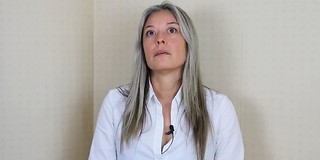Ukraine, Spain and the Second of May: Two wars of independence with remarkable similarities
Today is commemorated in Spain the uprising of the people of Madrid against the French invaders that occurred on May 2, 1808.
In Spain, the Second of May has gone down in history as the date on which the common people began their fight to recover the national independence of their Homeland against a tyrant with imperial ambitions: Napoleon Bonaparte. I do not want to pass up the opportunity to highlight the similarities between that War of Independence from Spain, which began with that popular uprising in Madrid, and the War of Independence that the heroic Ukrainian people against the Russian invaders. Two wars with remarkable similarities.
The annexation of Catalonia by France in 1812
Just as happened in Ukraine with the illegal annexation of part of its territory by Russia, on January 26, 1812 Napoleon decreed the annexation of the Spanish region of Catalonia to France. Just as now some try to justify the appropriation of a part of Ukraine by Russia, that annexation of Catalonia seemed a reissue of the Hispanic Brand created in that same Spanish region by Charlemagne in the 9th century and of the annexation of Catalonia to France of 1641, claimed by the General Deputation of the Principality of Catalonia (predecessor of the current Catalan Generalitat), and which turned what was initially a rebellion against the Monarchy -today remembered for separatist purposes- into a betrayal to Spain in the middle of the war against France, a betrayal that resulted in the loss of Roussillon, which remained in the hands of France.
Napoleon knew how to take advantage of the separatist ideals of a part of the Catalan elite to divide the Catalan people and appropriate that Spanish region. After the annexation, the French sought the favor of the most separatist sectors by declaring Catalan (in addition to French) as the official language of Catalonia, and banning the Spanish flag and eliminating the official nature of the Spanish language. Among the collaborationists with France there were many who were sympathetic to the ideology of the French Revolution of 1789.
However, the majority of Catalans saw the French as invaders and opposed them with great patriotic fervor. Let us remember, in fact, that during the War of Independence, the city of Gerona It was one of the first places in Spain where the current red and gold National Flag was raised on land, until then used as a Naval Flag, as a symbol of resistance to the invader.
The annexation of part of Ukraine by Russia
Something similar has happened in Ukraine, where Russia fueled the separatist movements that ended in an armed rebellion in 2014 in the Donbass. A separatism that has been manipulated by Russia, as was the Catalan separatism in 1812, to finally annex several regions of Ukraine, in which, despite Putin's plans, resistance against the invaders continues, just as happened in Catalonia after the aforementioned French annexation.
Invasions against countries in crisis and that have strengthened their national spirit
On the other hand, both Wars of Independence have their origin in invasions that sought to take advantage of the internal crisis of the invaded country, a crisis that had weakened both countries, to the benefit of France, in one case, and from Russia, on the other. Significantly, both Wars of Independence represented a consolidation of the national spirit. In the war in Spain, the current concept of Nation that we have today in Spain was forged to a great extent, beyond the traditional concept of the Kingdom as the personal domain of the monarch.
Similarly, the Russian invasion has served, against Putin's wishes, to strengthen the Ukrainian national spirit, even among that part of the population that felt least identified with it. And just as the War of Independence from Spain became a historical event with a great patriotic sense, the invasion of Ukraine will be remembered as the moment in which that country became truly aware of its condition as a Nation, through its resolve to defend its independence and its national sovereignty even at the cost of great sacrifices. It is the acid test that can best forge the patriotism of a people. The Spanish resisted the invader as fiercely as the Ukrainians, and that spirit of resistance was as admirable in 1808 as it is today.
The atrocities of the French in Spain and of the Russians in the Ukraine
Another aspect in which both wars bear an astonishing similarity is in the atrocities committed by the invaders against the civilian population of both countries, committing all kinds of massacres of the civilian population, raping and looting, destroying places of worship, its monuments and its artistic jewels. The crimes committed by the French in Spain are very reminiscent of those being committed by the Russians in Ukraine, not only because of their vileness, but also because of the unusual hatred shown by the invaders towards the invaded.
For Napoleonic France, Spain was a backward, uncultivated and rustic country, a mentality fueled by French revolutionary ideology that regarded traditional Spanish Catholicism with contempt. It is not hard to find those same messages of a superiority complex in Russian imperialism, which has historically treated the Ukrainians with contempt and which today directs against them supremacist messages that are very similar to those directed by Nazism against the Poles during World War II.
The attempt to install puppet governments in the invaded countries
On the other hand, at the beginning of the Russian invasion of Ukraine it became clear that Putin was seeking to install a puppet government in Ukraine, and hence much of Russia's initial offensive at the beginning of the invasion consisted of in several columns directed against Kiev. In the case of Spain, Napoleon managed to install a puppet government in Madrid, headed by his brother José Bonaparte. That government never had complete control of the country and ended up fleeing with the French defeat in 1814.
Attempts to instill fear in us to blind our sense of Justice
Beyond the notable coincidences between the two wars, what can most identify us Spaniards with the Ukrainians is the reason they have on their side. On May 2, 1808, the Spanish rose up against some invaders who wanted to end their national independence. They were right on their side and their cause was just, as Ukraine is today. Russian propagandists have been resorting to all kinds of ploys for more than a year to instill fear among the population that manages to blind that sense of Justice that should encourage us to support Ukraine, feeding ghosts such as the risk of a new world war, assuring us that thousands of people were going to die of cold in winter due to the lack of gas Russian or warning us of other misfortunes to come if we do not give in to Putin's wishes.
Fear is the best ally of tyrants like Napoleon and Putin. Free peoples must shake off these fears, if they do not want to become slaves. It is the great lesson that our ancestors left the Spanish with their resistance to the French invasion, and it is also the great lesson that Ukraine is giving the world today.
---
Image: picture "Dos de mayo", by Joaquín Sorolla.
|
Don't miss the news and content that interest you. Receive the free daily newsletter in your email: Click here to subscribe |
- Most read
- The ten oldest national flags in the world that are still in use today
- Argentina buys 24 F-16s and we can now see how they will be armed and decorated
- Lenin: numbers, data and images of the crimes of the first communist dictator
- United States' last Hueys: Vietnam-era veterans still flying in the US Air Force
- A spectacular video of an Alpha Scramble with Eurofighter aircraft from Spain and Germany
- The newspaper El Mundo calls a member of an active terrorist group a 'Palestinian militant'
- The distinctive garments of the regulars of the Spanish Army explained by two soldiers

 ES
ES





Opina sobre esta entrada: